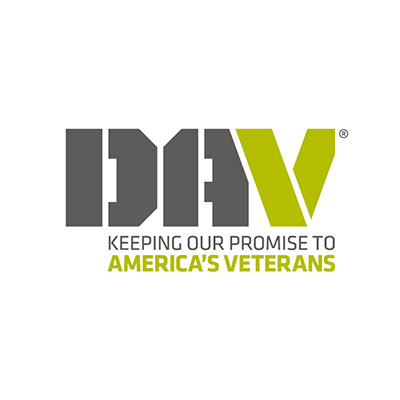Veterans
iHeartRadio
Show Your Stripes
iHeart is committed to creating a more supportive world for veterans returning home and to connecting veterans and their families with communities, businesses, resources, programs and nonprofits that support their different wellness needs and that are contributing to their overall wellbeing.
Show Your Stripes is built upon the 8 dimensions of wellness— emotional, environmental, financial, intellectual, occupational, physical, social and spiritual wellness.
Emotional Wellness
Coping effectively with life and creating satisfying relationships.

Every aspect of wellness can affect a person’s life. Working toward all of them in one way or another is a great goal, because wellness relates directly to the quality of a person’s life.
Home Base Veteran and Family Care operates the nation’s premier clinical program for the invisible wounds of war delivering innovative care solutions and treatment for the full spectrum of invisible wounds to include post-traumatic stress, traumatic brain injury, anxiety, depression, co-occurring substance use disorder, military sexual trauma, family relationship challenges and other issues associated with military service.
Home Base services are specifically designed to overcome common barriers to care. All care is provided to veterans and their families at no cost regardless of discharge status.
Home Base offers the first in the nation two-week accelerated Intensive Clinical Program (ICP) which combines a personalized comprehensive evaluation, individual and group therapy, stress reduction and resiliency, fitness and nutrition, family support and education. What would normally be a two-year course of treatment is compressed into two weeks and leverages the incredible resources of the Massachusetts General Hospital, Harvard Medical School and the Spaulding Rehabilitation Hospital.
Connect with Care
Therapeutic Retreats: Project Sanctuary hosts approximately 30 retreats annually across the country and are staffed and designed by Certified Therapeutic Recreation Specialists and licensed counselors. Family Support Program: Project Sanctuary offers services led by licensed clinical staff for all military and veterans’ families, and can include financial assistance, counseling referrals and connection to services offered by collaborating partners.
Destination Resource Weekends: These two-day events are offered three times a year to military and veteran singles or couples to focus on their unique and personalized needs.
Learn More
- Journaling
- Living a healthy and productive life with mental illness is possible, but requires healthy outlets and coping mechanisms. Journaling has been proven to be one of the most effective -- and therapist/counselor-recommended -- coping mechanisms for managing mental illness. More Info
- Yoga, Meditation and Practicing Mindfulness Meditation
- has long been acknowledged as a tool to help cope with stress. More Info
- Reducing Stress
- Developing a personalized approach to reducing stress can help you manage your mental health and improve your quality of life.
- Accept your needs
- Recognize what your triggers are. What situations make you feel physically and mentally agitated? Once you know this, you can avoid them when it's reasonable to, and to cope when you can't.
- Manage your time
- Prioritizing your activities can help you use your time well. Making a day-to-day schedule helps ensure you don't feel overwhelmed by everyday tasks and deadlines.
- Practice relaxation
- Deep breathing, meditation and progressive muscle relaxation are good ways to calm yourself. Taking a break to refocus can have benefits beyond the immediate moment.
- Exercise daily
- Schedule time to walk outside, bike or join a dance class. Whatever you do, make sure it's fun. Daily exercise naturally produces stress-relieving hormones in your body and improves your overall physical health.
- Set aside time for yourself
- Schedule something that makes you feel good. It might be reading a book, go to the movies, get a massage or take your dog for a walk.
- Eat Well
- Eating unprocessed foods, like whole grains, vegetables, and fresh fruit is the foundation for a healthy body and mind. Eating well can also help stabilize your mood.
- Get enough sleep
- Symptoms of some mental health conditions, like mania in bipolar disorder, can be triggered by getting too little sleep.
- Avoid alcohol and drugs
- They don't actually reduce stress: in fact, they often worsen it. If you're struggling with substance abuse, educate yourself and get help.
- Talk to someone
- Whether to friends, family, a counselor or a support group, airing out and talking can help. Consider attending a NAMI Connection Recovery Support Group. More Info
- Self Help Apps by the VA Browse and download tools by the VA to help deal with common feelings like stress, sadness, and anxiety. You can also track your feelings over time. More Info
- Mindfulness Exercises
- Sometimes the best way to move forward is to pause for a moment to refresh and recharge.
Chill Drills by Military OneSource is a collection of simple audio mindfulness exercises to relax the body and mind. The Department of Defense developed these relaxation exercises for the military community and are free to service members and their families via the mobile app or the Military OneSource website.
Download the Chill Drills by Military OneSource App
- NAMI Homefront is a free online suite of resources for caregivers, family members, and military service members and veterans designed to increase understanding, communication, wellness and advocacy skills.
- Accessible through computers or mobile devices, NAMI Homefront Mental Health Resources is available 24/7 and includes information about:
Find the NAMI Homefront nearest to you
Physical Wellness
Recognizing the need for physical activity, healthy foods, appropriate healthcare and sleep.

Every aspect of wellness can affect a person’s life. And because wellness relates directly to the quality of every person’s life, working toward improvement in all of these aspects in one way or another is a great and achievable goal.
Find a Location
Learn More and Register
Learn more about how Medicare works with your VA benefits.
Learn More
Learn More
Learn More
Learn More
The following organizations also provide services and programs similar to DAV that have a national reach and access to resources across the range of different dimensions of wellness. Chances are there is a chapter in your community.
Learn More
Social Wellness
Developing a sense of connection, belonging, and a well-developed support system.

Every aspect of wellness can affect a person’s life. And because wellness relates directly to the quality of every person’s life, working toward improvement in all of these aspects in one way or another is a great and achievable goal.
Connect Now
Some ofthe organizations' offerings include:
Learn More
Find Local Volunteer Opportunities in your area
Learn More
Find a chapter in your area
Occupational Wellness
Personal satisfaction and enrichment from one’s work.

Every aspect of wellness can affect a person’s life. And because wellness relates directly to the quality of every person’s life, working toward improvement in all of these aspects in one way or another is a great and achievable goal.
Find Nearest Location
Learn More
Connect
More than 20,000 veterans have successfully completed the ACP Program.
Learn More
Explore programs in career, vocations and entrepreneurship education.
Learn More
The U.S. Department of Defense’s SkillBridge program is an excellent opportunity for future veterans to gain valuable career training and work experience while still serving on active duty. This program greatly enhances the marketability and post-separation career prospects of participating service members.
Learn More
Financial Wellness
Satisfaction with current and future financial situations.

Every aspect of wellness can affect a person’s life. And because wellness relates directly to the quality of every person’s life, working toward improvement in all of these aspects in one way or another is a great and achievable goal.
Explore Tips
Register Now
VeteransPlus helps veterans and their families secure financial freedom through education, coaching and financial literacy programs. From presentations at outreach events to in-depth personalized financial coaching by phone, their team of veteran educators and counselors have a proven record of “Helping Heroes Afford Life”.
Learn More
Learn More
The Department of Labor Unemployment portal provides a central location to explore unemployment benefits and benefits available under the CARES Act (Coronavirus Aid, Relief, and Economic Security)—broken down by state.
Search More
Find helpful and free resources from government agencies and nonprofits.
Click Here
Environmental Wellness
Good health by occupying pleasant, stimulating environments that support well-being.

Every aspect of wellness can affect a person’s life. And because wellness relates directly to the quality of every person’s life, working toward improvement in all of these aspects in one way or another is a great and achievable goal.
Soldier On is a nationally-recognized non-profit whose mission is to offer a continuum of care that includes immediate and long-term housing with services delivered where veterans live. Their goal is to provide formerly homeless veterans with permanent, supportive, sustainable housing -- assisting veterans in their transition from homelessness to home ownership.
Learn More
Homes For Our Troops donates newly constructed, specially adapted custom homes designed for maximum freedom of movement and the ability to live more independently.
Learn More
Hope For The Warriors’ Drive for Hope program helps veterans maintain independent driving and transportation, allowing individuals to exercise autonomy; return to work; increase participation in family activities; and reintegrate back into their communities, while reclaiming roles which may have been lost due to injury or medical conditions.
Apply for services
Make the forest part of your family's story. Find a forest or park near you to get started.
Discover the forest
In national parks that charge an entrance fee, a veteran will need to present one of the following forms of identification to receive a free annual Interagency Military Pass:
How does a Gold Star Family gain free access to a national park?
Before visiting a national park site, Gold Star Family members must download and print a voucher to present to park staff, exchange for an annual Interagency Military Pass, or place on the vehicle dashboard at unstaffed sites (representations of the voucher are prohibited; the physical voucher or pass must be present).
View a list of federal locations that issue passes.
View List
Intellectual Wellness
Recognizing creative abilities and finding ways to expand knowledge and skills.

Every aspect of wellness can affect a person’s life. And because wellness relates directly to the quality of every person’s life, working toward improvement in all of these aspects in one way or another is a great and achievable goal.
Free help with your GI Bill and student rights is available at Help@VetsEdSuccess.Org
Find a campus chapter
There are many resources to help veterans navigate going back to school:
GI Bill Comparison Tool - Launched by the U.S. Department of Veterans Affairs, the GI Tool Comparison helps veterans find data on every college and training program eligible for the GI Bill. Found out how much tuition assistance you are eligible for at the schools of your choice.
Find Out
College Scorecard - Launched by the U.S. Education Department, the College Scorecard allows comparison of colleges and searches by the program you want or region of the country; includes earnings after graduation and average debt load.
Leanr More
Community College Finder - find an affordable community college in your community and get started on your educational and new career journey.
College Finder
Search Tool
More Info
Survivors and Dependents’ Educational Assistance (DEA, CFR Chapter 35)
More Info
Learn More
Learn More
Spiritual Wellness
Expanding a sense of purpose and meaning in life.

Every aspect of wellness can affect a person’s life. And because wellness relates directly to the quality of every person’s life, working toward improvement in all of these aspects in one way or another is a great and achievable goal.
Say something. Preferably out loud. Many faiths believe you can shape your world by speaking aloud the world you want to manifest. In psychology, the same idea is behind the recitation of affirmations. Whatever you believe, speaking your intentions out loud can change your thoughts and ultimately have a positive effect on your life.
Ask the big questions. “What am I doing here?” “What does it all mean?” The quest for greater truth begins with big questions, and you’re not only allowed to ask -- you’re allowed to answer. Contemplating the meaning of life and seeking your greater purpose teaches the importance of the present moment and opens you to the infinite possibilities that lie ahead for your life.
Find out what you believe. Determining a set of values begins with discovering what’s important to you. Is tolerance important? Is it important to defend those who cannot defend themselves? Is love important above all things? Defining your values gives you a framework to live by – and it’s important to revisit them from time to time to see if they’ve changed.
Be true to yourself. Living authentically can offer tremendous benefits. When you honor your true self you are stronger in adversity and a better leader to your peers. Best of all, your confidence will rub off on your friends.
View a list of federal locations that issue passes.
Learn More

Wellness - -
And Why It's Important
Wellness is about more than health -- it also includes emotional, environmental, financial, intellectual, occupational, physical, social and spiritual wellbeing, and every aspect of wellness can affect a person’s life.
Veterans and their families often face difficult and unique physical and mental challenges, some as a result of war trauma. Often the approach in dealing with these challenges is a clinical diagnosis. But wellness is more than a clinical diagnosis; it is conscious, self-directed and evolving; holistic and multidimensional; positive and affirming; and inclusive. Programs and services that focus on the eight dimensions of wellness enhance the natural resiliency of veterans and their families and place them on a path to becoming successful, productive leaders and members of their community, and our goal is to offer broad recommendations and resources that can contribute to a person’s overall wellness..
Local & Individualized Support
Browse other relevant resources to help you achieve overall wellness.

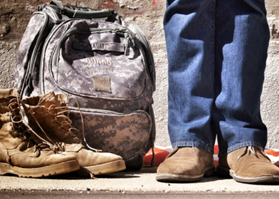
National Resources Directory
Access national, state and local services and resources.



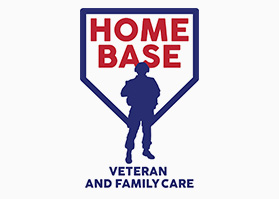
Homebase Nation Podcast
Home Base Nation podcast brings you discussions on thriving beyond surviving.

Jesse
United States Army's InfantryJesse had a difficult time adjusting to civilian life after deployment. He used drugs and alcohol to try to forget his experiences in Iraq. He eventually reached out for help at VA, where he received therapy and connected with other Veterans. Now Jesse’s a Peer Support Specialist and encourages fellow Veterans to reach out for help

Drew
U.S. Army VeteranDrew followed in his father's footsteps and joined the U.S. Army, where he lost close friends while he was deployed. A month after returning home, Drew started experiencing symptoms of PTSD. He began pushing away his family and friends, and his parents didn’t know how to encourage him to seek help. Hear how this military family was able to reconnect through mental health treatment and recovery.
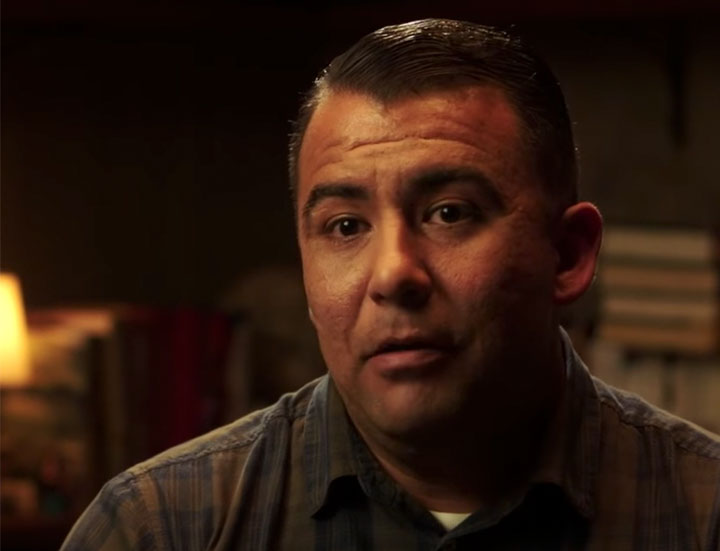
Fernando
U.S. Army VeteranFernando experienced heavy combat when he deployed to Fallujah. He felt anxious, guilty, and hypervigilant when he returned home. Learn how cognitive behavioral therapy and helping others has allowed Fernando to live his life to the fullest.

Yasmeen
U.S. Navy VeteranYasmeen experienced severe depression in the Navy after witnessing a fellow sailor die. An attempt at self-harm made her realize it was time to get help. Through counseling at VA, Yasmeen learned ways to manage her mental health challenges. Now, she has improved relationships with her children and is on track to graduate from college.

Anna
U.S. Air Force VeteranWhen Anna was in the Air Force, she experienced military sexual trauma. After she got home, nightmares and self-blame made her miserable. Her mom encouraged her to reach out to VA, and she started seeing a counselor. Through counseling, Anna was able to stop blaming herself and begin to move on. Recently engaged, she is now on a better path.

Mike
U.S. Army VeteranAt a young age, Mike knew he wanted to serve in the Army. After being critically injured in an attack, he was evacuated back to the States. For Mike, counseling and art therapy helped him express the mental health challenges he was going through and start down the path to healing and recovery. Hear more of this Veteran’s inspiring story here.

Jeff
Army National GuardWhile deployed, Jeff endured enemy fire, mortar attacks, and rocket blasts. The effects stuck with him: At one point, he was on the verge of taking his own life when his wife, Cora, convinced him to seek help. Learn how Jeff has used therapy, community, and gymnastics to recover.

Brian
Army Reserve / National Guard Post-9/11 EraAfter returning from Iraq, Brian experienced headaches and intense eye pain. He found it difficult to see without sunglasses and had trouble studying and driving. His doctor explained that his eyes had been injured and he had a traumatic brain injury. Understanding the condition that was causing his symptoms helped him on the road to recovery.
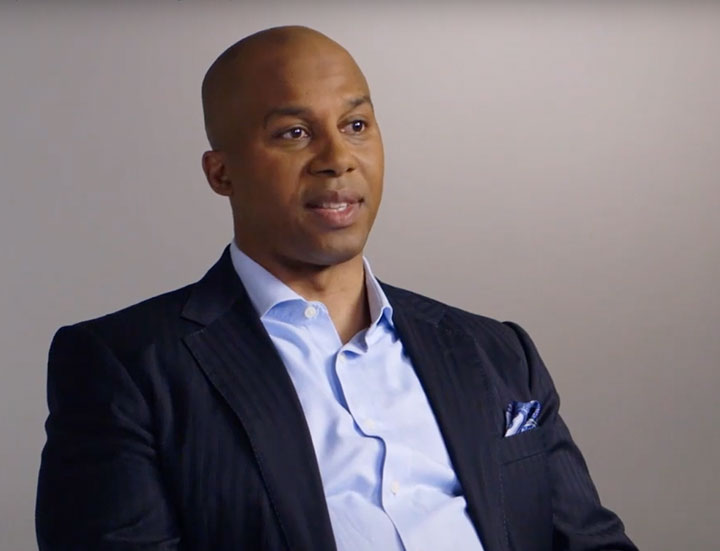
Brian
U.S. Army VeteranBrian served in the Army during Desert Storm. Once home, he moved quickly between jobs and began isolating himself. Family and relationship problems spurred Brian to get help at VA. Through counseling and meditation, he has regained stability in his life, gone back to school, and become a supporter for other student Veterans.

Sandy
U.S. NavySandy was on edge while serving in the Navy, and her anxiety persisted after her transition to civilian life. She finally called the Veterans Crisis Line and went to a hospital for inpatient care. Now, therapy continues helping Sandy cope with anxiety and PTSD — and repair her relationship with her husband.

Jessica
U.S. Army VeteranWhile serving in the U.S. Army, Jessica experienced depression and anxiety. When she returned home, she went to her local Vet Center, where therapy helped her manage her mental health challenges. Treatment and the support of her loved ones helps Jessica live a more balanced life.
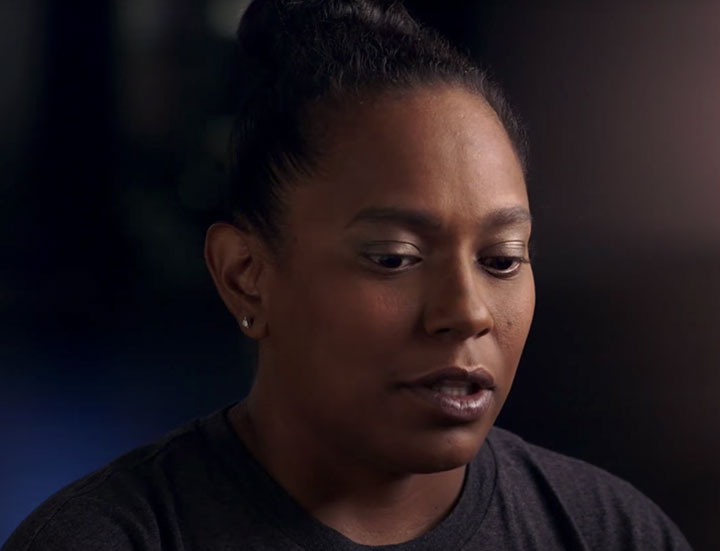
Shannan
U.S. Army/Army Reserve/National GuardShannan had trouble transitioning from the Army to civilian life, dealing with sleep apnea, insomnia, and bipolar. As a medic, she knew she needed to seek mental health support and reached out. Therapy and reconnecting with her roots have helped Shannon move forward.
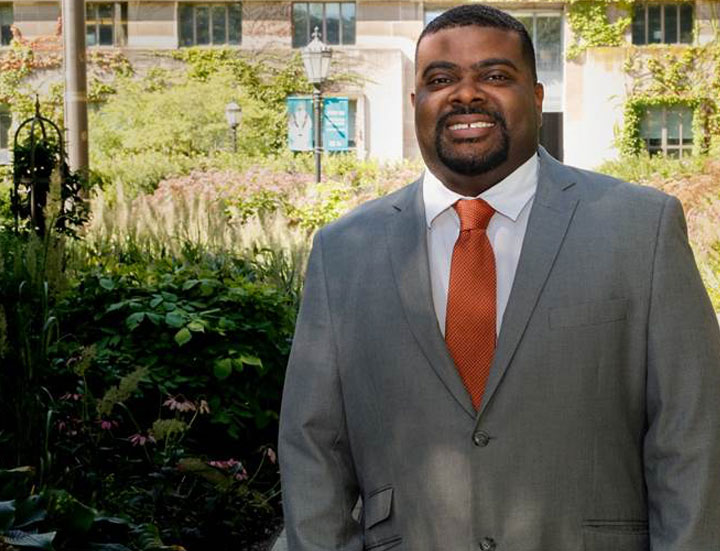
Terrell
U.S. Navy VeteranTerrell is a U.S. Navy veteran, having served as a hospital corpsman onboard naval ships and alongside the U.S. Marine Corps. He returned from active duty in 2005 and has worked for various universities and colleges including City Colleges of Chicago and the University of Chicago to help veterans achieve intellectual and occupational wellness. Terrell has dedicated his career to helping veterans transition back into civilian life and has created various courses and bootcamps to help veterans continue their education and launch their post-military careers. He also serves as a licensed Veteran Services Officer National Association for Black Veterans (NABVETS) Inc and assists veterans and their dependents with disability claims, indemnity payments and other services. He also chairs the Advisory Council on Veterans Affairs for the City of Chicago.

Daniel
U.S. Navy VeteranAs a U.S. Navy photographer stationed in Japan, Daniel captured the aftermath of a devastating tsunami. Upon returning home, he experienced anxiety, depression and PTSD and had trouble sleeping. Today he is back enjoying life again with the help of his wife and mental health support.

Sergeant Travis S. Peterson
MarineSergeant Travis S. Peterson currently resides in Augusta, Georgia where he passionately works with several organizations helping veterans overcome drug and alcohol addiction. Born and reared in Winnsboro, SC, in 1997, he left home and joined the U.S. Marine Corps in 1997. He served as a Rifleman, Team leader, Squad leader and an Infantry Platoon Sergeant with India Company, 3rd Battalion, 3rd Marine Division. He received orders to 3rd Marine Division Schools where he served as Chief Instructor for HRST Masters Course, Infantry Squad Leader School, Inter-service Non-lethal Weapons Course, and several other Division level schools. He received orders to Bravo Company, 1st Battalion, 3rd Marine Division where he served in combat during Operation Iraqi Freedom I and II. He received numerous awards to include a Purple Heart while serving in combat as an Infantry Squad Leader. In 2009, he married his best friend from high school, Joye Seibles. They have three children, to their union a daughter, Makenzie.

Dixon Center for Military and Veterans Services
If you are an individual, organization, or community that wants to contribute to the overall wellbeing of veterans and their families, Dixon Center for Military and Veterans Services is a resource for ideas, influence, and actions.




